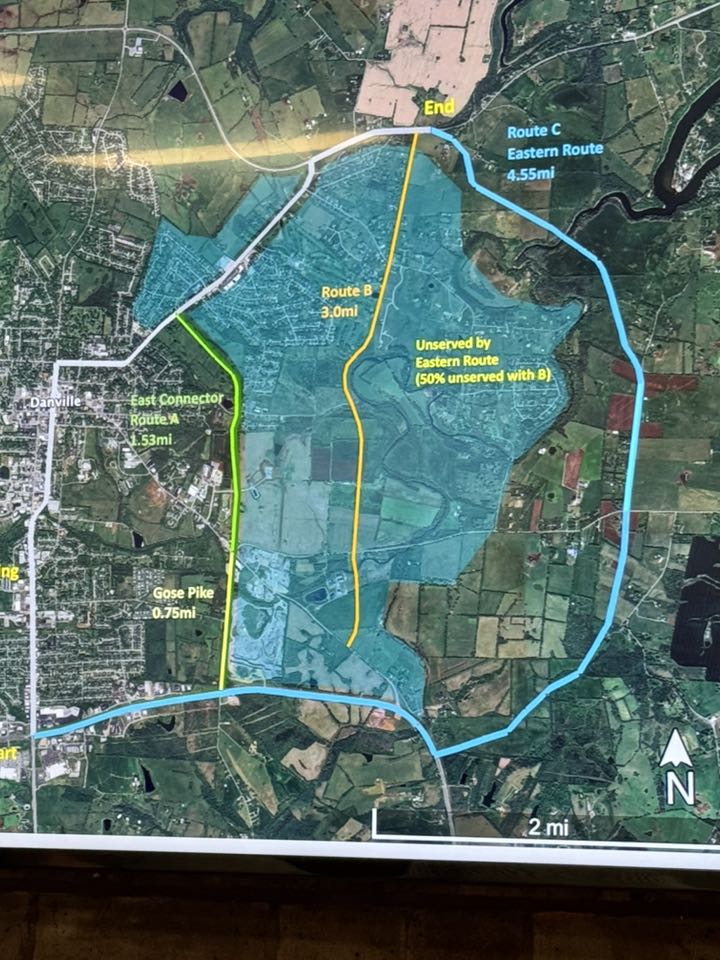Advocates warn bill would ‘eviscerate’ open records
Published 6:45 pm Tuesday, January 8, 2019

- public domain
Open government advocates and the Kentucky Press Association are sounding the alarm about proposed legislation they say would deal heavy damage to the state’s open records laws.
The bill prefiled by Sen. Danny Carroll (R-Paducah) would prohibit disclosure of “personal information” in public records for 10 categories of public employees: police officers, first responders, most judges, social workers in the Cabinet for Health and Family Services, Department of Health who investigate child abuse or neglect, Department of Financial Institutions employees who investigate fraud and criminal activity, Department of Revenue employees, current and former prosecutors, Department of Corrections officers and emergency dispatchers.
The bill would create a $500 penalty for disclosing the newly protected records. And it would introduce a new legal concept that open records requests could be considered “frivolous” based on why a requester wants the information. Under the proposed law, a judge could decide that an open records request was made for “an improper purpose” and hold the requester liable for the government’s costs in fighting the request.
Trending
The Kentucky Press Association issued a four-page statement Tuesday denouncing the bill as “a flat-out attempt to eviscerate the open records law as an effective tool for the public to monitor the actions and activities of large and important parts of state and local government.”
KPA believes the most concerning aspect of the bill is the new requirement it would create that people filing open records requests be able to defend their requests in court.
“The bill does not elaborate on what might be considered ‘an improper purpose,’ other than to note that actions intended to violate the law or be ‘frivolous’ would fall into this category,” the PA statement reads. “This expansive definition would give judges substantial leeway in deciding whether a requester’s motives were worthy or not. This provision would force everyday citizens and media organizations to pick up the government’s legal bills merely for requesting access to public records.”
In a guest column published in today’s Advocate-Messenger, former assistant attorney general and open government proponent Amye Bensenhaver called the bill “jabberwocky” and warned it “cannot be reconciled — and cannot coexist — with open records law.”
“Where it is not overtly bad, it is redundant, a poorly cobbled together statute that apparently borrows from a variety of sources without reference to internal consistency or compatibility with the existing open records law,” Bensenhaver wrote. “It poses a grave threat to the public’s right to know whether ‘agencies properly execute their statutory functions’ and ‘whether public servants are indeed serving the public’ by divesting the public of its right to records relating to public employee misconduct and discipline, where the need to know might be the greatest.”
Sen. Carroll was not immediately available to comment Tuesday afternoon on the KPA statement or Bensenhaver’s perspective on his bill. Carroll told Kentucky Center for Investigative Reporting Monday night that he didn’t write the bill. It was “brought to him by a state Homeland Security employee and a Secret Service agent working in Kentucky, who he declined to name,” according to KCIR.
Trending
“I do not want to make changes to the Open Records Act that would have a negative impact on transparency,” Carroll told KCIR. “As we move through this process, I’m open to hearing from anyone who has concerns and exactly what their concerns are.”
Bensenhaver wrote that Carroll’s unnamed sources for the bill “have accomplished something hitherto unknown in the annals of Kentucky’s open government laws: a legislative proposal that disserves both the public and public agencies.”
Carroll told Courier-Journal reporter Deborah Yetter he intended for the bill to “protect the personal information of folks” such as police officers, firefighters and judges “for safety issues.”
“I really don’t see anything unreasonable about the intent of this, but there may be some language in this that needs to be adjusted,” Carroll told Yetter.
The “personal information” that would be designated as protected from open records requests includes home addresses; identities of family members; home and personal cell phone numbers; financial account information; social security numbers; driver’s license information; birthdates; “financial information;” insurance and medical information; personal email addresses; “personal photographs not publicly released by the person on social media;” utility account information; “any publicly available information through the county clerk’s office, to include any permits, liens, filings;” passwords; and “information related to promotion, appraisal and employee discipline records.”
It would also bar releasing “information the disclosure of which would constitute an unwarranted invasion of personal privacy.”
Making employee discipline records confidential is “the most troubling,” according to KPA, because “it would allow agencies to withhold the very kind of information that has produced important disciplinary actions and systemic reforms — for example, information about misconduct by police officers or whether a Cabinet for Health and Family Services employee accused of turning a blind eye to child abuse had ever received a poor evaluation at work (both actual examples of information previously obtained under the Open Records Act).”
KPA’s statement also questions several other vaguely defined categories of information that would be redacted, such as the category listed simply as “financial information.”
“Would that cover information about a public employee’s salary or accusations that senior officials were paid well above the typical range for their position …?” the KPA statement asks.
The exemption for “personal photographs not publicly released by the person on social media” could potentially allow images from police body cameras to be withheld, KPA warns.
“Many of the remaining categories of exempted records are already covered by the Open Records Act,” the KPA statement notes. “For example, the Open Records Act currently exempts records if disclosure ‘would constitute a clearly unwarranted invasion of personal privacy.’ This is a standard that has been interpreted in the courts and in practice to limit disclosure of social security numbers, personal telephone numbers and other personal identifying information.”
Carroll’s bill “needlessly itemizes a litany of exempted identifying information and adds its own exemption for ‘unwarranted invasion of personal privacy,'” according to KPA.
“Carroll is a former police officer whose stated goal is ‘to ensure public safety officers’ public information is protected’ and who, rightly or wrongly, believes that the open records law fails to do so,” Bensenhaver wrote in her column. “To his credit, he has expressed a willingness to work with open government advocates who oppose the bill.
“Respectfully, he would achieve the best results by scuttling (the bill), salvaging the few useful provisions of the bill (including a provision that requires agencies to preserve all public records that are the subject of an open records dispute during the pendency of the dispute), and working with those advocates to introduce new — but consistent and complementary — language into the existing open records law if needed.”






